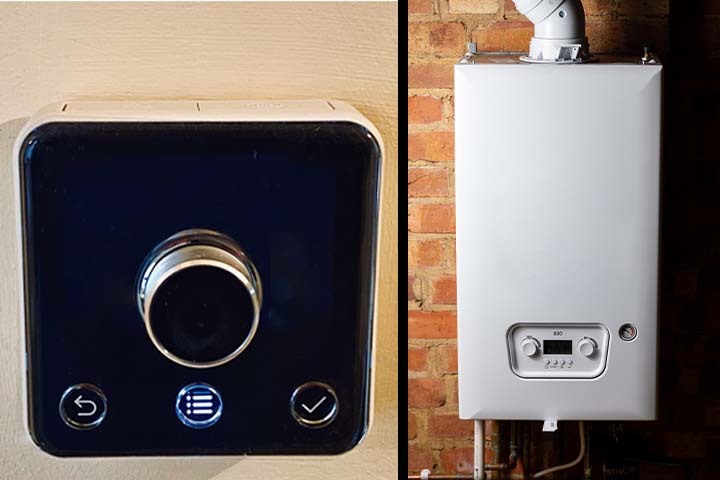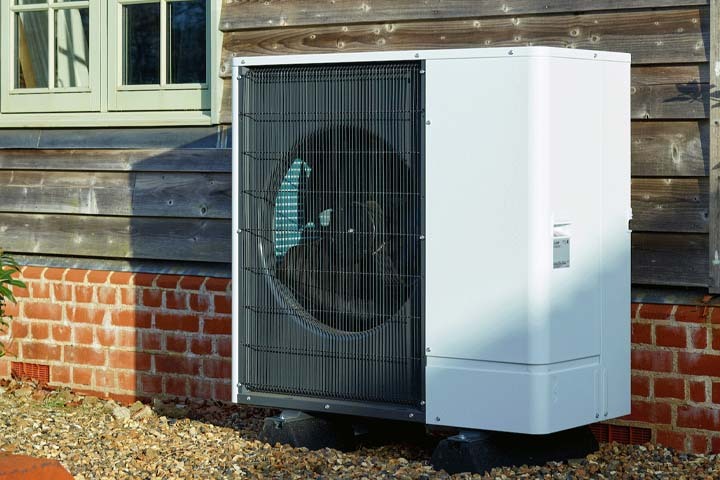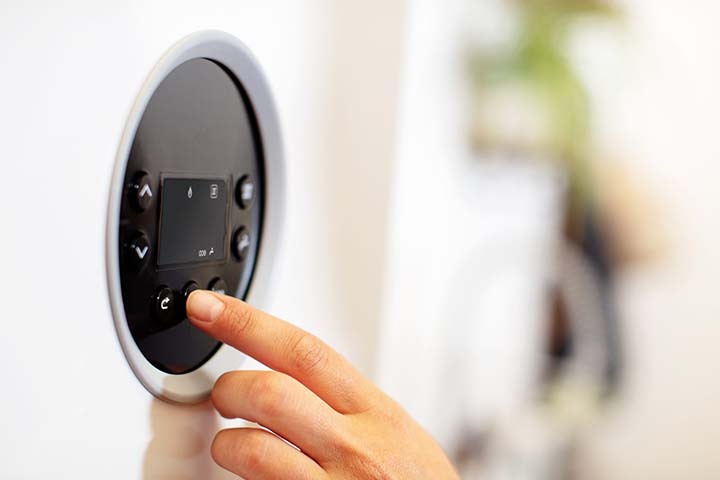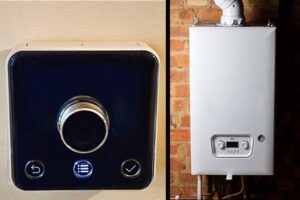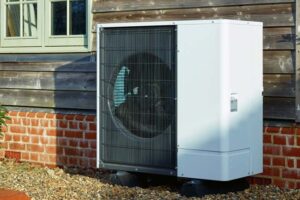Table of Contents
As we strive for a sustainable and more environment-friendly future, it is critical to explore innovative approaches that help mitigate climate change and lessen our dependency on fossil fuels. The air source heat pump grant (ASHP) is one such option with enormous promise.
The majority of the carbon emissions in the UK come from the fossil fuels that are used in our homes for cooking, hot water, and heating. Since 85% of households still use natural gas boilers, we must switch to a less carbon-intensive method of heating our buildings.
This detailed guide dives deep into the government heat pump grant, providing you with all the essential information you need to make informed decisions about this innovative heating solution.
Understanding the Air Source Heat Pump Grant:
People are becoming increasingly conscious of their carbon footprint and exploring fossil fuel alternatives for home heating as the risks associated with climate change become more widely known.
Air Source Heat Pump Grant UK is an important low-carbon heating solution that can assist in decarbonizing heat in our homes during the next decade. Making the switch to low-carbon renewable heating sources can result in significant carbon savings, but if we are to fulfil the UK’s Net Zero ambitions, we must accelerate and expand the scope of installations.
Boris Johnson, the UK Prime Minister, announced a proposal to begin addressing the decarbonization of our heating systems in November 2020. Broadly speaking, a ten-point strategy was released to assist the UK in becoming carbon neutral by 2050. The plan called for installing 600,000 heat pumps annually by the year 2028.
Prior to this, the government had previously declared that, as part of the Future Homes Standard, natural gas boilers and other kinds of fossil fuel heating will be prohibited in household new buildings beginning in 2025.
Air Source heat pump grants are a fantastic choice to consider when upgrading or replacing your present heating system.
Categories of Air Source Heat Pumps
Air source heat pumps are classified into two types: air-to-water and air-to-air. They operate using distinct mechanisms and are suitable for various heating systems.
Air-to-water heat pumps
Air-to-water heat pumps extract heat from the external atmosphere and transfer it to your hydronic central heating system.
Air-to-water heat pumps are best suited for bigger radiators or water underfloor heating systems due to their lower heat output compared to typical gas or oil boilers. In order to achieve maximum efficiency, they must possess a substantial surface area to dissipate heat. You can get this type free of cost from the government air source heat pump grants.
When expanding your house or constructing a new building, it is more efficient to integrate larger radiators or underfloor heating systems for a heat pump. Additionally, it might be more cost-effective than retrofitting underfloor heating at a later time.
Air-to-air heat pumps
Air-to-air heat pumps extract heat energy from the external atmosphere and distribute it indoors using fans. A warm air circulation system is necessary to facilitate the movement of heat throughout your residence. You may obtain this heating system by UK air source heat pumps grants
These systems are incapable of generating hot water, hence necessitating the use of a separate immersion heater or alternative water heating system.
ASHPs perform efficiently at lower temperatures, making them ideal for underfloor heating systems or bigger radiators since they provide heat at lower temperatures for longer periods. They can still extract heat when air temperatures are as low as -20°Celcius outside!
During the summer, an air-to-air heat pump has the capability to function in reverse. Essentially, you might utilize it as an air-conditioning apparatus to deliver cold air to your residence.
Eligibility for the Grant:
Eligibility criteria for the Air Source Heat Pump Grant UK may vary depending on the specific program and location. However, some common factors include:
- The grant is typically available to homeowners, landlords, and Private Tenants.
- You’re likely to be eligible if your EPC rating is D (lower), E, F, or G and you heat your home using one of the following:
- electric storage heaters
- open fires
- room heaters
- electric warm air system
- electric underfloor or ceiling heating (not connected to an electric boiler)
- solid fuel boiler
- oil boiler
- electric boiler
- LPG boiler
- You receive any of the certain benefits below:
- Child benefit
- Child Tax Credit
- Income-related Jobseekers Allowance
- Income-related Employment and Support Allowance
- Pension Credit Guarantee
- Pensions Credit Savings Credit
- Universal Credit
- Working Tax Credit
You may also be eligible if you have a low income and high heating costs for your house.
Grant Amounts and Regional Variations:
The amount of the Air Source Heat Pump Grant UK varies significantly depending on the program and region. Here are a few examples:
- UK Boiler Upgrade Scheme (BUS): Up to £6,000
- Scotland’s Home Energy Scotland Loan: Up to £14,000
- Ireland’s Better Energy Warmer Homes Scheme: Up to €5,000
To access specific details about grant amounts and eligibility in your area, it’s vital to consult the official website of the relevant program.
The Process of Applying for Air Source Heat Pump Grants
Grant Research:
Conduct thorough research on the various grants available at both local and national levels. Each grant program comes with its own set of criteria and financial structures.
Pre-application Eligibility Check:
Before hitting the “Apply” button, carefully review and confirm that you meet all the outlined eligibility requirements. This proactive step helps in avoiding potential delays or application rejections.
Document Compilation:
Gather the necessary documentation, including proof of ownership, income statements, Benefit letter and detailed information about your existing heating system. Being well-prepared in this aspect expedites the application process.
Choosing credible Installers:
Air Source Heat pump Grant programs often mandate the use of accredited installers. Ensure that the professional you choose meets the stipulated qualifications, ensuring a smooth path towards grant approval.
A Seamless Submission:
Follow the guidelines provided by the grant program meticulously. Complete all required forms accurately and submit them along with the supporting documentation. This step-by-step approach enhances your chances of a successful application.
Common Government grants available for heat pumps
There are currently several UK heat pump grants up to grabs. While most of these schemes provide financial support to cover air source heat pump costs, others cover all of the costs to help low-income households.
So, what schemes are in place to help Brits afford heat pumps? Let’s take a look.
| Heat Pump Grant | Potential savings |
|---|---|
| Boiler Upgrade Scheme | £7,500 for an air, ground, or water source heat pump |
| ECO4 | This depends on the person’s individual situation |
| Warmer Homes Scotland | This depends on the person’s individual situation |
The Boiler Upgrade Scheme
The Boiler Upgrade Scheme, initially called the Clean Heat Grant aims to help people replace their boilers with a more eco-friendly alternative, like heat pumps.
The scheme has been extended, and will now run until 2028 (rather than the original 2025 date), after the government published its new Net Zero strategy at the end of March 2023.
In September 2023, the government announced additional help for homeowners looking to switch to a low-carbon heating system, confirming that heat pump grants in England and Wales would rise to £7,500 from, 23 October. In Scotland, homeowners were already able to claim up to £7,500 towards installing a heat pump.
Despite the benefits of the scheme, 73% of people are still unaware of the Boiler Upgrade scheme, according to the National Home Energy Survey.
Exploring the Benefits of Air Source Heat Pump Grants
Energy Efficiency
One of the primary benefits of air source heat pump grants is their exceptional energy efficiency. In contrast to traditional heating systems, which use fossil fuels to create heat, ASHPs use a tiny amount of energy to collect heat from the surrounding air. Using thermodynamic principles, ASHPs may generate up to four units of heat energy for every unit of electricity consumed, resulting in an energy efficiency ratio (EER) of more than 300%. This exceptional efficiency cuts not just energy usage but also utility expenses for both households and businesses
Source of Renewable Energy
Air source heat pumps get energy from an unlimited and freely available source: the air we breathe. Absorbing heat from the outside air and transferring it within to heat buildings or water is the process. Because air is a renewable resource, ASHPs provide a long-term heating option that decreases reliance on nonrenewable energy sources. These systems align with the aims of lowering greenhouse gas emissions and addressing climate change by using the power of the environment.
Versatility and all-year comfort
Air source heat pumps provide both heating and cooling capabilities, making them a versatile year-round comfort option. During the winter months, ASHPs capture heat from the external air and transport it within, even at subzero conditions. In the summer, the method may be inverted to cool the indoor area by absorbing heat from within and distributing it outside. This dual capability removes the need for separate heating and cooling systems, saving households money and increasing convenience.
Lower Carbon Footprint
The grant for air source heat pumps helps to drastically reduce carbon emissions. Because ASHPs use electricity rather than fossil fuels, they emit less carbon dioxide (CO2), aiding in the fight against global warming and improving air quality. By investing in renewable energy sources such as solar or wind to power ASHPs, the carbon footprint may be further decreased, assuring a brighter and cleaner future for future generations.
Financial incentives and cost-cutting measures
Governments all across the globe see the value of supporting sustainable technology and frequently provides financial grant for air source heat pump. These incentives may take the form of grants, tax credits, or subsidies, to make the initial investment more accessible for individuals and businesses. Furthermore, because of their excellent energy efficiency, ASHPs can assist in lowering long-term energy costs. Utility bill savings can offset early installation expenses, resulting in considerable cost savings throughout the system’s lifetime.
Allow Us To get you the Air Source Heat Pump grant
At Grant Boilers, we believe in not just meeting but exceeding your expectations. Your satisfaction is our ultimate goal, and we are dedicated to providing a grant for an air-source heat pump. We will not only ensure the seamless approval and installation process but also leave you with peace of mind. At the moment you are on board with Grant Boilers, rest assured that your comfort is in the hands of experts who prioritize excellence.
If you’re interested in learning more about the Air Source Heat Pump Grant and exploring the possibilities of ASHPs for your home, you are in the right spot.
FAQ’s
Q: What is an Air Source Heat Pump Grant?
Answer: The Air Source Heat Pump Grant, also known as the Boiler Upgrade Scheme (BUS), ECO4 Scheme, is a government initiative in the UK that provides financial assistance to households towards the cost of installing an air source heat pump. This grant aims to encourage the adoption of renewable energy sources for heating and reduce carbon emissions.
Q: How much is the Air Source Heat Pump Grant?
Answer: From 23 October 2023, the grant value for air source heat pumps & ground source heat pumps will increase from £5,000 (air source) and £6,000 (ground source) to £7,500.
Q: Am I eligible for the Air Source Heat Pump Grant?
Answer: To qualify for the UK heat pump grant, you must meet the following criteria:
- You must own a home in the UK.
- Your home must not be off the gas grid.
- You must install an air source heat pump system that meets the required efficiency standards set by the Microgeneration Certification Scheme (MCS).
- Your installer must be MCS certified.
- Must Receive certain benefits from the government.
Q: How do I apply for the Air Source Heat Pump Grant?
Answer: The application process is handled by your chosen MCS-certified installer. They will apply on your behalf and receive the grant payment directly after the installation is complete.
Q: Are there any other benefits to installing an Air Source Heat Pump?
Answer: In addition to the financial benefits of the grant, air source heat pumps offer several other advantages, including:
Lower carbon emissions: Air source heat pumps are a more sustainable alternative to traditional gas boilers, as they utilize renewable energy.
Reduced heating bills: Air source heat pumps can be more energy-efficient than traditional boilers, potentially reducing your heating costs.
Year-round comfort: Some air source heat pumps can also be used for cooling in the summer months.
Increased property value: Homes with air source heat pumps are typically more attractive to buyers and can potentially command a higher price.







